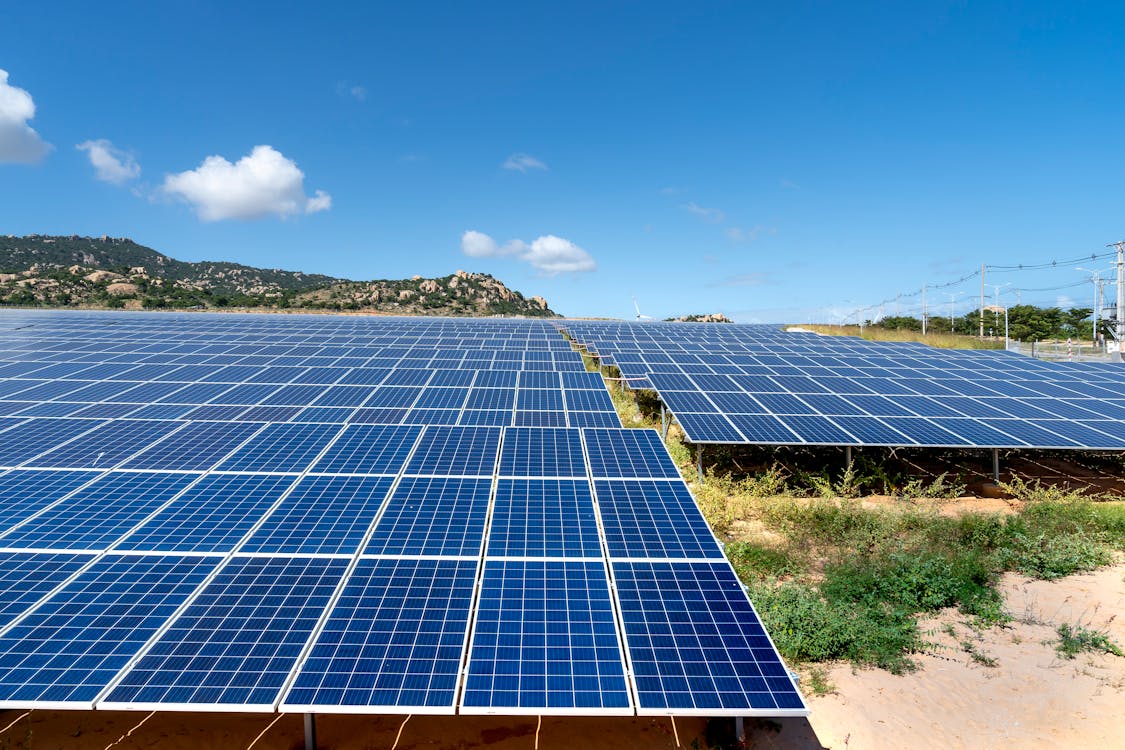
In an era where environmental concerns are at the forefront, the quest for sustainable and renewable energy sources has never been more critical. Among the myriad of alternatives, solar energy stands out as a viable and increasingly popular solution. Solar panels, the technological marvels that harness the power of the sun, are paving the way for a cleaner, greener future. This blog delves into the myriad benefits of solar energy and the role solar panels play in revolutionizing our energy landscape.
Understanding Solar Energy
Solar energy is derived from the sun’s radiation, a vast and inexhaustible resource. This energy can be converted into electricity using photovoltaic (PV) cells, commonly known as solar panels. The sun produces enough energy in one hour to power the entire world for a year, making solar energy one of the most promising solutions to our energy needs.
The Rise of Solar Panels
Solar panels have evolved significantly since their inception. Today, they are more efficient, affordable, and versatile. Here’s how they work: Solar Panels are made up of many solar cells, usually silicon-based. When sunlight hits these cells, it knocks electrons loose, creating an electric current. This process is known as the photovoltaic effect.
Benefits of Solar Panels
- Renewable and Abundant: Solar energy is a renewable resource, meaning it won’t run out as long as the sun exists. Unlike fossil fuels, which are finite and polluting, solar energy provides a clean and virtually limitless supply of power.
- Environmentally Friendly: Solar panels generate electricity without emitting greenhouse gases or other pollutants. This significantly reduces our carbon footprint and helps combat climate change.
- Cost Savings: While the initial investment in solar panels can be substantial, the long-term savings are significant. Homeowners and businesses can drastically reduce or even eliminate their electricity bills. Additionally, many governments offer incentives, rebates, and tax breaks for solar panel installations.
- Energy Independence: By installing solar panels, individuals and communities can reduce their dependence on traditional energy sources. This decentralization of power generation enhances energy security and resilience.
- Low Maintenance: Solar panels require minimal maintenance. With no moving parts, the risk of mechanical failure is low, and most systems have a lifespan of 25-30 years.
The Impact of Solar Energy on the Grid
Solar energy is transforming the traditional power grid. With the rise of distributed generation, where power is produced at or near the point of use, the energy landscape is becoming more decentralized. This shift can lead to more resilient and flexible power systems, capable of better integrating renewable energy sources.
Technological Advancements
Innovations in solar technology are driving efficiency and cost reductions. Here are a few key advancements:
- Perovskite Solar Cells: These cells promise higher efficiency and lower production costs compared to traditional silicon cells.
- Bifacial Solar Panels: These panels capture sunlight on both sides, increasing the energy yield.
- Building-Integrated Photovoltaics (BIPV): Solar panels are integrated into building materials like windows and facades, making them a seamless part of the architecture.
Overcoming Challenges
While solar energy has many benefits, challenges remain. These include the intermittent nature of sunlight, the need for large areas for solar farms, and the environmental impact of manufacturing solar panels. However, ongoing research and development are addressing these issues, making solar energy an even more attractive option.
The Sun’s Light and Heat: Harnessing Solar Energy for a Sustainable Future
Solar energy, derived from the sun’s light and heat, is one of the most promising alternative energy sources available today. With the rising concerns over climate change, dwindling fossil fuel reserves, and the ever-growing demand for energy, the transition to renewable energy sources is more crucial than ever. Among these, solar energy stands out due to its abundant availability and environmental benefits. This essay explores the significance of solar panels in harnessing solar energy and the critical role they play in addressing global energy issues.
The Science Behind Solar Energy
Solar energy is the energy that comes from the sun’s radiation. This energy can be harnessed in two main ways: photovoltaic (PV) cells convert sunlight directly into electricity, while solar thermal systems capture heat from the sun to produce thermal energy. Solar panels, consisting of numerous photovoltaic cells, are the primary technology used to convert sunlight into usable electricity.
The Benefits of Solar Panels
- Sustainability and Renewability: Unlike fossil fuels, which are finite and contribute to environmental degradation, solar energy is renewable and sustainable. The sun provides an inexhaustible supply of energy, making it a reliable source for the long term.
- Environmental Impact: Solar panels generate electricity without emitting greenhouse gases or other pollutants. By reducing reliance on coal, oil, and natural gas, solar energy helps mitigate climate change and reduces air and water pollution.
- Economic Advantages: The cost of solar panels has decreased significantly over the past decade, making solar energy more accessible to homeowners and businesses. Additionally, many governments offer incentives, rebates, and tax breaks for solar panel installations, further reducing the financial barrier.
- Energy Independence: Solar panels enable individuals and communities to generate their own electricity, reducing dependence on external energy sources. This decentralization of energy production increases energy security and can lead to more stable energy prices.
- Minimal Maintenance: Solar panels require little maintenance once installed. With no moving parts, they have a low risk of mechanical failure and can last for 25-30 years or more with minimal upkeep.
The Role of Solar Panels in Energy Transition
As the world grapples with the urgent need to transition to renewable energy, solar panels are at the forefront of this shift. They play a critical role in diversifying our energy portfolio and reducing our carbon footprint. The integration of solar panels into residential, commercial, and industrial sectors is transforming how we produce and consume energy.
Technological Advancements and Innovations
Recent advancements in solar technology are making solar panels more efficient and affordable. Innovations such as perovskite solar cells, which offer higher efficiency rates and lower production costs, and bifacial solar panels, which capture sunlight on both sides, are revolutionizing the industry. Building-integrated photovoltaics (BIPV) seamlessly incorporate solar panels into building materials, further expanding their applications.
Addressing Challenges
Despite the numerous benefits, there are challenges associated with solar energy. These include the intermittent nature of sunlight, the need for large areas to install solar panels, and the environmental impact of manufacturing solar cells. However, ongoing research and development are addressing these issues. Energy storage solutions, such as advanced battery systems, are improving the reliability of solar energy by storing excess power for use during cloudy days or nighttime.
Solar energy and solar panels are not just an alternative source of energy; they are a cornerstone of a sustainable future. As technology continues to advance and costs decline, the adoption of solar power will only accelerate. By embracing solar energy, we can reduce our environmental impact, save money, and create a resilient and sustainable energy system for future generations.
Incorporating solar panels into our energy mix is more than a trend; it’s a necessary step towards a cleaner, more sustainable world. The sun shines brightly on our path to energy independence and environmental stewardship, and with solar panels, we have the tools to harness its power for the benefit of all.


